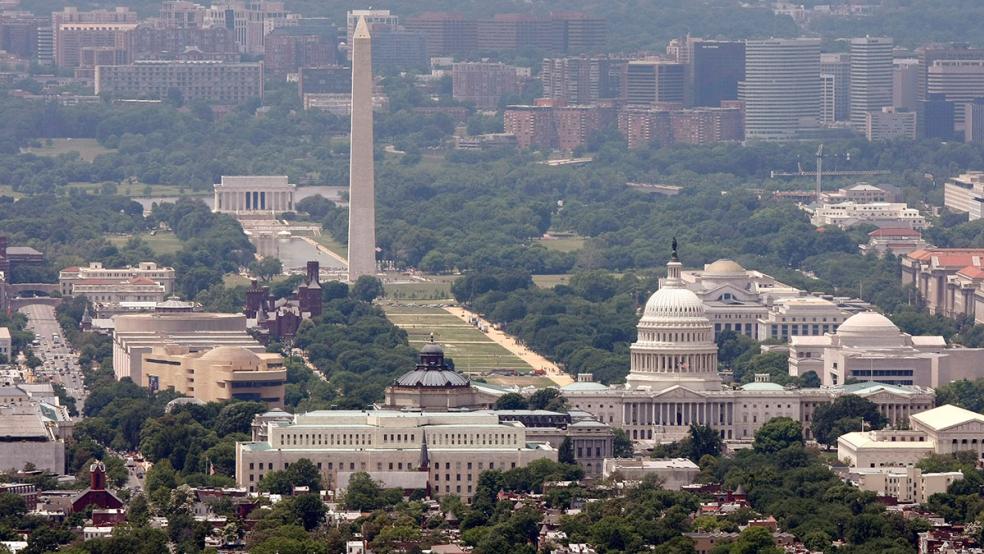Republicans have long are campaigned on their dislike of Washington, criticizing everything “inside the beltway” as corrupt or antithetical to freedom. But Jason Chaffetz, the chairman of the House Committee on Oversight and Investigations, has done his colleagues one better. The Utah Republican is proposing to move Washington itself outside the beltway.
As part of a proposal that is described as “the first step in a process to bring government closer to the people by evaluating which agencies might better serve their purpose elsewhere,” Chaffetz on Tuesday introduced H.R. 38, the Divest DC Act.
Related: The Best and Worst States for Taxes in 2017
“Government needs to be closer to the people it regulates,” he said in a statement. “As it stands, decision makers at various agencies are largely shielded from the impact of their decisions. Housing federal agencies in a city with one of the highest median incomes in the United States is not only expensive, but keeps federal bureaucrats in an economic and political bubble that offers a distorted view of the realities facing this country.”
He continued, “This resolution is the first step toward decentralizing federal agencies and initiating a process that shares the wealth of stable federal jobs with other communities across the United States. I look forward to working with my colleagues on legislation to identify locations where these agencies can best serve the American people.”
There are, to be sure, a few impediments to shipping the Commerce Department to Kalamazoo and sending the Pentagon to Peoria. The first is whether or not it’s wise to think about abandoning the Washington-based infrastructure that the federal government has created for itself over hundreds of years. Employees of different parts of the executive branch frequently meet with each other, and that’s much easier to do when it doesn’t involve flying across the country.
Another is whether or not such a proposal could survive the sustained assault of the lobbyists, government contractors, law firms and others who have grafted themselves so completely to D.C. and the surrounding suburbs over the generations and who would be loath to decamp for somewhere else.
Finally, though, is the question of whether a greatly decentralized federal government would be able to attract the kind of talent it needs to operate effectively. Part of what attracts many young, smart people to federal service is that Washington is a cosmopolitan place with lots of social, cultural and other opportunities for a wide range of people. The same can’t be said for all parts of the country.
Related: The 9 States (and One District) Americans Are Flocking To
Chaffetz’s proposal is, in the end, not likely to lead to an actual restructuring of the federal government. But like many pieces of legislation introduced in Washington, then Divest Act is more about symbolism than about actual policymaking.
It’s a way to win points with conservative voters, and to raise questions about whether the federal government is in touch with the needs of the people. And neither of those requires any real action from lawmakers at all.





